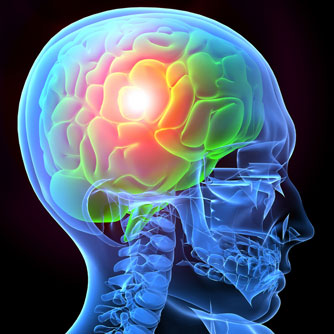In 2011, researchers at McMaster University found that ‘cross-talk’ between the brain and bacteria in the gut (intestinal microbiota) plays an important role in the development of psychiatric illness. Published in Neurogastroenterology and Motility, the study (which was conducted using germ-free mice) shows that intestinal microbiota influences anxiety-like behavior by altering the way the brain is wired. Science Daily explains:
The study’s results show that genes linked to learning and memory are altered in germ-free mice and, in particular, they are altered in one of the key brain regions for learning and memory – the hippocampus.
This discovery is exciting because it could lead to new treatment alternatives for patients with psychiatric disorders – decreasing dependence on drug therapies. As researcher Jane Foster, associate professor in the Department of Psychiatry and Behavioural Neurosciences at the Michael G. DeGroote School of Medicine, notes:
“The idea behind this research is to see if it’s possible to develop new therapies which could target the body, free of complications related to getting into the brain. We need novel targets that take a different approach than what is currently on the market for psychiatric illness. Those targets could be the immune system, your gut function.…”
A more recent review, published in the May 2012 issue of Neurogastroenterology and Motility, summarizes what we know so far:
“The strongest evidence for a role of microbes as signaling components in the gut-brain axis currently arises from animal studies and indicate that mechanisms of communication are likely to be multiple. There is need for the concepts generated in animal models to be translated to the human in the future” (Bercik, P., Collins, S. M. and Verdu, E. F.).
To learn more, please follow the links in the references section below!
References:
Bercik, P., Collins, S. M. and Verdu, E. F. Microbes and the gut-brain axis. Neurogastroenterology & Motility, 2012; 24: 405–413. doi: 10.1111/j.1365-2982.2012.01906.x
K. M. Neufeld, N. Kang, J. Bienenstock, J. A. Foster. Reduced anxiety-like behavior and central neurochemical change in germ-free mice. Neurogastroenterology & Motility, 2011; 23 (3): 255 DOI: 10.1111/j.1365-2982.2010.01620.x
McMaster University (2011, March 24). Knowing it in your gut: Cross-talk between human gut bacteria and brain. Science Daily. Retrieved October 4, 2012.



Leave a Reply